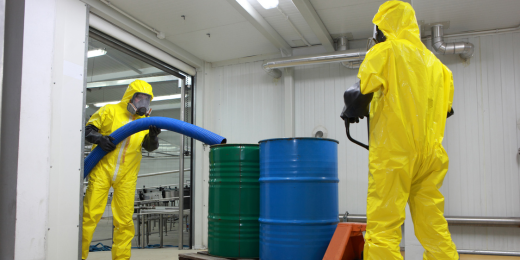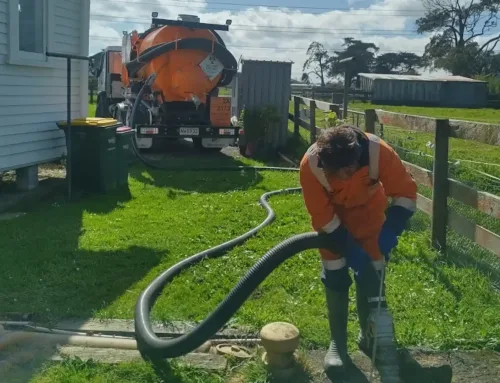5 Easy Facts About Reclaim Waste Described
5 Easy Facts About Reclaim Waste Described
Blog Article
The smart Trick of Reclaim Waste That Nobody is Talking About
Table of ContentsThe 5-Minute Rule for Reclaim WasteReclaim Waste Things To Know Before You Buy6 Simple Techniques For Reclaim Waste3 Simple Techniques For Reclaim WasteSome Of Reclaim Waste
Discover the types, occurrences, and forms of fluid waste. Residential sewage waste describes the waste and items from a residential sewage-disposal tank. This sort of waste is created by human beings in homes, colleges, and other structures. This only includes septic systems that have a drainpipe area. The proper management and disposal of residential sewage waste call for liquid waste to be transferred to a sewer therapy plant where the proper methods and tools are put on purify and throw away waste.
Industrial waste typically consists of possible risks, such as flammable products or a mixture of fluid and strong waste items, and needs an advanced and thorough disposal procedure. The disposal of industrial waste generally includes the filtering of waste before transport to make sure secure and correct disposal. Industrial waste is developed from byproducts and drainage of industrial processes and production.
This type of waste can not make use of the same sewer administration transportation or processes as septic or commercial liquids. The hazardous waste monitoring process needs the inspection and screening of fluid waste before it undergoes the disposal procedure (liquid waste disposal melbourne). Overflow waste is the fluid waste that comes from overflow and excess stormwater in very populated locations or cities
Overflow waste can create contamination and flooding otherwise handled correctly. Find out more about sewage system cleaning and waste administration. Ensuring correct waste monitoring can protect against calamities and minimize environmental injury. Both individuals in household settings and experts in industrial or production markets can take advantage of comprehending the procedures and regulations of fluid waste management.
The 4-Minute Rule for Reclaim Waste
Call PROS Services today to discover our waste monitoring and disposal services and the proper means to take care of the liquid waste you produce.
(https://www.provenexpert.com/reclaim-waste/)Do you understand what happens to your water when you disengage, purge the commode or drain pipes the cleaning machine? No? Well, it's worth recognizing. This supposed 'wastewater' is not just a crucial source however, after treatment, will be released to our land, rivers or the ocean. Utilized water from commodes, showers, baths, kitchen sinks, laundries and commercial processes is understood as wastewater.

water made use of to cool equipment or tidy plant and devices). Stormwater, a type of wastewater, is runoff that moves from farming and city areas such as roofing systems, parks, gardens, roadways, courses and rain gutters right into stormwater drains pipes, after rain. Stormwater flows without treatment straight to neighborhood creeks or rivers, ultimately getting to the ocean.
What Does Reclaim Waste Mean?
In Queensland, the majority of wastewater is dealt with at sewage therapy plants. Wastewater is transferred from residential or industrial websites with a system of sewers and pump terminals, referred to as sewerage reticulation, to a sewage therapy plant. City governments develop, keep and operate most sewer therapy plants. Operators are accredited under the Environmental Management Act 1994 to release cured wastewater at an acceptable environmental review standard right into rivers.
The Division of Natural Resources encourages regional federal governments about handling, operating and preserving sewerage systems and treatment plants. In unsewered locations, city governments may call for owners to set up private or family sewage treatment systems to treat residential wastewater from commodes, cooking areas, restrooms and laundries. The Division of Natural Resources authorises the use of house systems when they are shown to be reliable.
In some new subdivisions, treatment of some stormwater to remove clutter, sand and crushed rock has begun making use of gross pollutant catches. Wastewater treatment takes place in four stages: Removes solid matter.
Wastewater after that flows right into huge containers where solids settle and are gotten rid of as sludge. Grease and scum are skimmed from the surface area. Makes use of small living microorganisms referred to as micro-organisms to damage down and remove staying liquified wastes and fine particles. Micro-organisms and wastes are integrated in the sludge. Gets rid of nitrogen and phosphorus nutrients that can cause algal blossoms in our waterways and endanger aquatic life.
4 Simple Techniques For Reclaim Waste
Nutrient removal is not readily available whatsoever sewage therapy plants due to the fact that it needs costly specialized tools. It is ending up being extra common in Queensland. Clear fluid effluent produced after therapy might still contain disease-causing micro-organisms. If this effluent is released right into rivers such as rivers or the sea, the micro-organisms will at some point die out.

A lot of wastewater moves into the sewage system. Under the Act, neighborhood federal governments carry out approvals and permits for environmentally appropriate activities (Ages) entailing wastewater releases that might have a regional influence.
Indicators on Reclaim Waste You Need To Know
Otherwise, samples are taken for lab analysis. Typically many tests are required to develop the levels of each of the various toxins such as oils, hefty steels and chemicals in water. Surveillance offers accurate details concerning water top quality and can validate that licence problems are being met. The info obtained with tracking supplies the basis for making water quality decisions.
Report this page